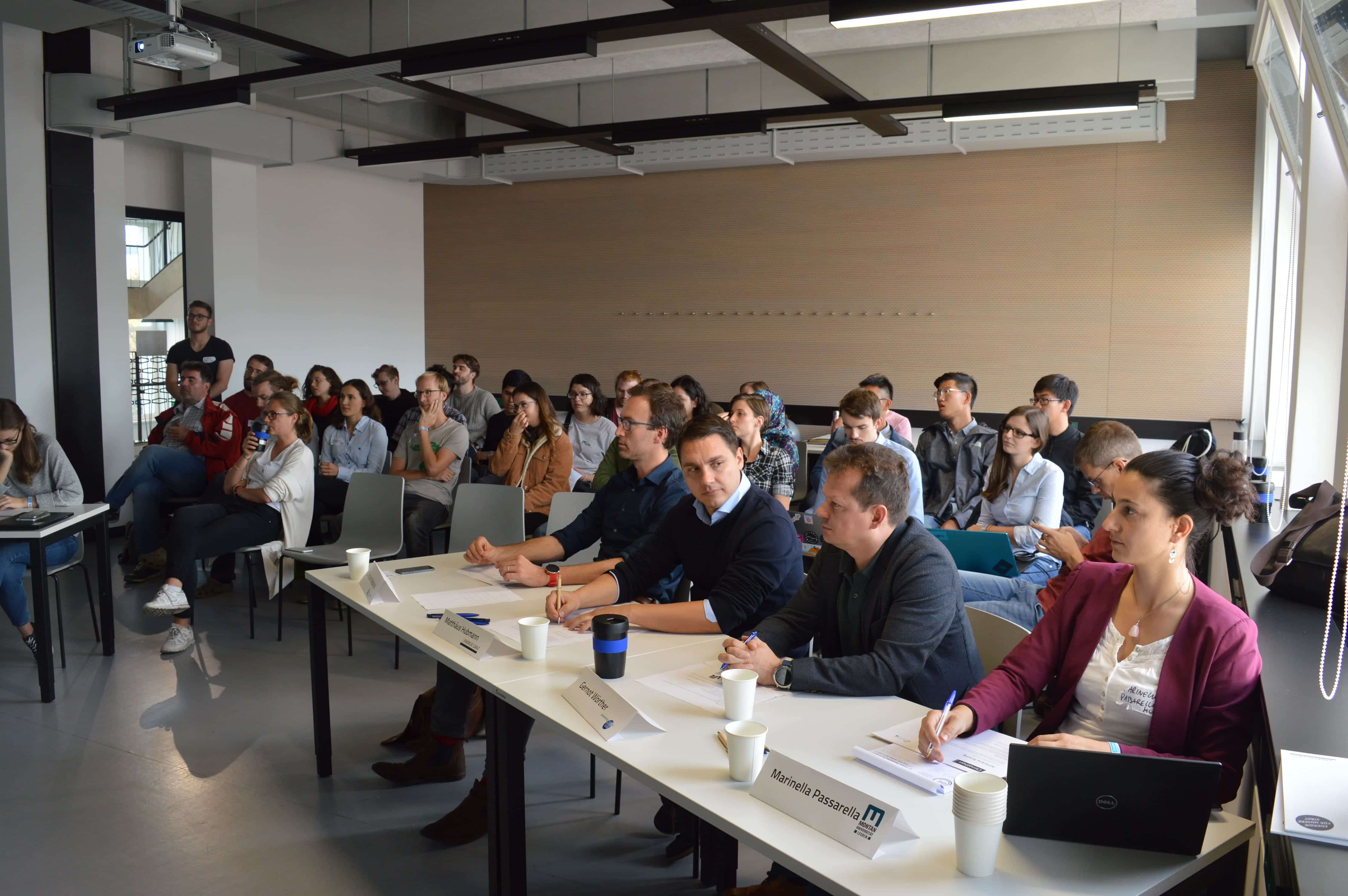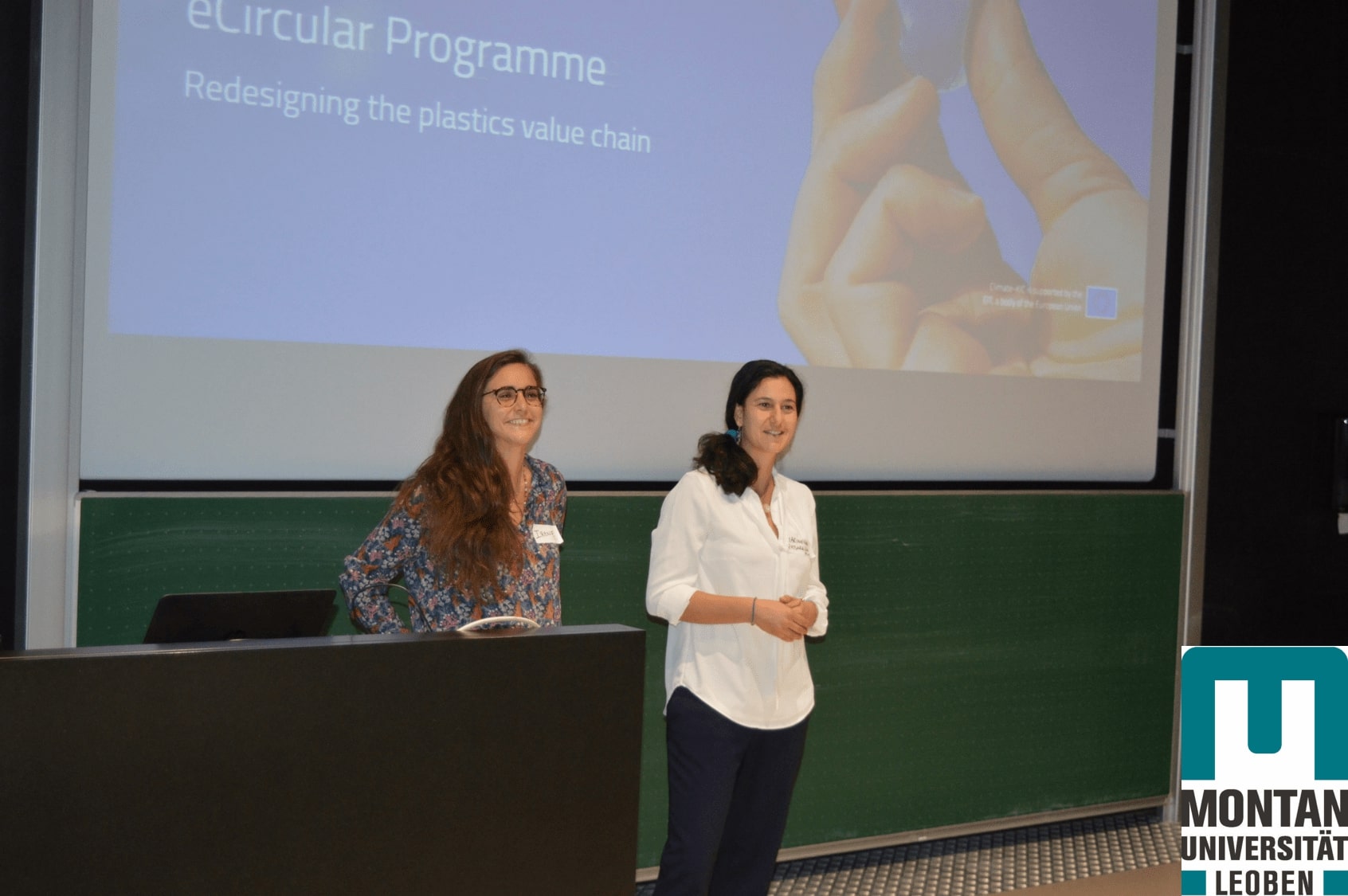eCircular at Zero Plastic Waste Challenge at Climathon Graz
By Marinella Passarella, Anna Kieninger-Fantoni, Omar Szabo; Montanuniversitaet Leoben *
Climathon Graz
eCircular participated actively at Climathon Graz 2019 through the Montanuniversitaet Leoben by proposing a specific challenge on plastics waste prevention based on the line of actions of eCircular.
Climathon is a year-round programme with a powerful solutions-hackathon at its core, translating climate action solutions into tangible projects, supporting climate positive businesses & start-ups and addressing local policy changes.
Graz is commonly known for its big involvement in climate policy and is home to a lot of start-ups who focus on climate innovation. Also there are a lot of universities in and around Graz who do major activities regarding climate. Thus, Graz is the ideal location for a Climathon.
This year eCircular and Montanuniversitaet Leoben presented a challenge at the “solutions-hackathon” in Graz on October 24-25 2019 and supported three start-ups who participated in the challenge.
Zero Plastic Waste In Urban Areas
The usage of plastic should be reduced, optimized and its recyclable potential better exploited. Working groups should think about Graz as a study area where their solutions and ideas could be tested locally, to be later potentially replicated or scaled-up to a regional and national scale.
The challenge
High demand, production and consumption of plastics worldwide have a strong impact on climate change and environmental pollution. This is due to both, the production process, and disposal of plastics, which often is dispersed into the environment with consequent pollution of land, rivers and oceans.
Nevertheless, nowadays plastic remains an incredibly useful material, in some cases still essential at several levels of application in society. What seems to be crucial is to reduce the demand and production of single-use plastics products as well as to improve the collection, recycling and disposal. Furthermore, the circularity of plastic-based material systems should be accelerated through eco-design, smart manufactory and new business models.
In this framework, some key elements are the facilitation of alternative behaviour of consumers and the rise of awareness at all levels in the society. The social and human behavioural aspects should not be underestimated but rather be integrated with the other above-mentioned aspects.
Following the vision of a carbon-neutral material system in 2050, solutions for facing the issue of plastics waste prevention should be investigated focusing on five lines of actions:
- Innovative strategies, procedures and technologies for effective waste collection and disposal
- New design principles of modularity, disassembly, recycling
- Digital innovations & smart manufacturing solutions; new business models to dematerialize demand
- Behaviour change of citizens to reduce demand
- New industry standards and new policies
Working groups can either focus on a single line of action or decide to integrate two or more lines of action for facing the problem with a systemic approach.
The solutions
Three groups participated in the “Zero Plastic Waste In Urban Areas”-challenge. All three teams developed different solutions to tackling plastic waste in urban areas.
One team developed an expanded collection system with a Zero Plastic Waste Application to keep all plastic products on the economy and out of the environment. The ZWP application connects the government, customers, plastic production and recycling companies (plastic trash machine) and markets into a closed plastic recycling system that can achieve zero plastic waste in city. Government and plastic production and recycling companies put plastic trash machine in various areas of the city. The main function of this plastic trash machine is scoring for the users who collect the plastic waste.
Another proposal introduced an extensive deposit scheme for plastic packaging in Graz. The team came up with a new waste collection/ sorting system based on the deposit scheme already in use for glass bottles. The relevant collection machine works by scanning the barcode of the plastic packaging, looking up in a database if the product is recyclable, sorting the waste in a designated container and storing the information about which product was collected for further use. By bringing back recyclable plastic waste to the stores and recycling it the consumer is not only rewarded with discounts but also informed of their consumer behavior.
The third team proposed the idea of introducing zero packaging to the market in an innovative and casual way. to foster gradual change. The team intends to start with having one item of one product offered in bulk sale and the bigger market chains in the country and markets.
Read a more detailed description of the solutions in the full article.
* This blog is a slightly amended excerpt from the original article. In the name of the authors, we invite you to read the full article via the button below.



